Australian Spring chores are necessary to keep the hens healthy and laying well. Just after the Winter Solstice the girls should start laying again. By Spring, they should all be popping out eggs and this can mean a whole lot more interesting times ahead.
Here's your 'how to' for Spring.
#1 Cut back on treats
Too many treats can get in the way of them eating their official poultry feed that is full of essential vitamins and minerals.
It will be hard, but hold back those treats! That is the chore. No more bowls of porridge!
#2 Mow the grass
The reason lawn mowing is important is that LONG grasses that are eaten by the poultry can cause Impacted Crop problems.
It is easier and kinder to PREVENT Impacted Crop than to fix it.
The second reason is that by keeping grass length down, snakes have less places to hide.
#3 Coop clean, pest dust and worm poultry
Sweep, wash down, air out the coops. And then replace with FRESH materials.
Worming should be done every 3 months. I time this with the change of season. Worming and pest dusting can be done on the same day.
- Pest dust the hens AND nesting boxes with PESTENE
- Worm with a product that has the active ingredient of LEVAMISOLE
#4 Broodies
First sign is the large broody poos.
Second clue is the noise a broody makes while sitting in her nesting box, hunkering down.
This is the season when hens want to become mothers. But if you are NOT planning on hatching, they need to be kept OUT of the nesting boxes during the day.
The reason are:
- Broodies will lose body weight with their extra heat that they make (incubator heat). Loss of weight can result in a suppressed immune system and possible early death.
- Constant sitting in the nesting box can result in contracting external pests such as lice and mites.
The answer is to 'Break' the broodiness by removing the hen from the nesting boxes for the day.
Locate a cool shadey spot to fence off just for her, with food and water.
Return her to the coop at night, but in the morning, return her to her special fenced off area.
ALTERNATIVELY, block off the nesting boxes with an old ice cream container or soccer ball. This will only work if all the hens are broody together OR the other hens have finished laying for the day.
If you want to hatch fertilised eggs, using that broody hen is the cheapest way to hatch.
If you reject the eggs for hatching, have an incubator at the ready, as a back up plan.
SPRING is HATCHING SEASON!
#5 Hatching time
If you are breeding with your own flock with a rooster, then take precautions such as:
- Chicken Saddle for the hens (to prevent harm from an overly aggressive loving rooster).
- Having worming and pest dusting up to date.
- Adequate calcium to have strong egg shells (weak shelled eggs should not be used for hatching)
- Have a broody mother hen coop separate from the main coop, if possible.
- Order vaccinations ahead of hatching date.
- Purchase chick feed ready for when chicks hatch.
- Have an incubator ready as a back up in case mother hen abandons her eggs
Incubator hatching:
- Ensure it is thoroughly clean and in working order - test temperature by running it for 24 hours.
- Calibrate hygrometers for gauging accurate humidity
- Have a brooder box ready for hatched chicks
- Purchase chick feed
Hatching season goes from Spring through to Summer.
#6 Fertilising the Garden
Fence off the base of trees during the feeding (ideally in August).
Fence off ANY area you need to fertilise. This can be taken away once pellets are dissolved into the soil.
If your poultry free range on your back lawn, do NOT add any fertiliser. Then hens are doing a magnificent job of that already.
But what about the weeds in the lawn?
Where ever your poultry roam, you will need to hand weed. Sorry.
Save the Feed & Weed products for the front lawn, instead.
ALTERNATIVELY, fertilise the lawn in sections - fencing off an area at a time.
Citrus trees are very hungry feeders. Ensure that you use the poultry manure (fresh or dried) around the base of these trees. They can handle the 'hot' manure of poultry.
Remember to dry out poultry manure for 3 months before using on garden beds. Yes, you can dry it out on top of the soil and then dig it in after the 3 months have passed. Hot manure will kill the roots of many plants, drying out reduces that burn.
Citrus and chickens go hand-in-hand!

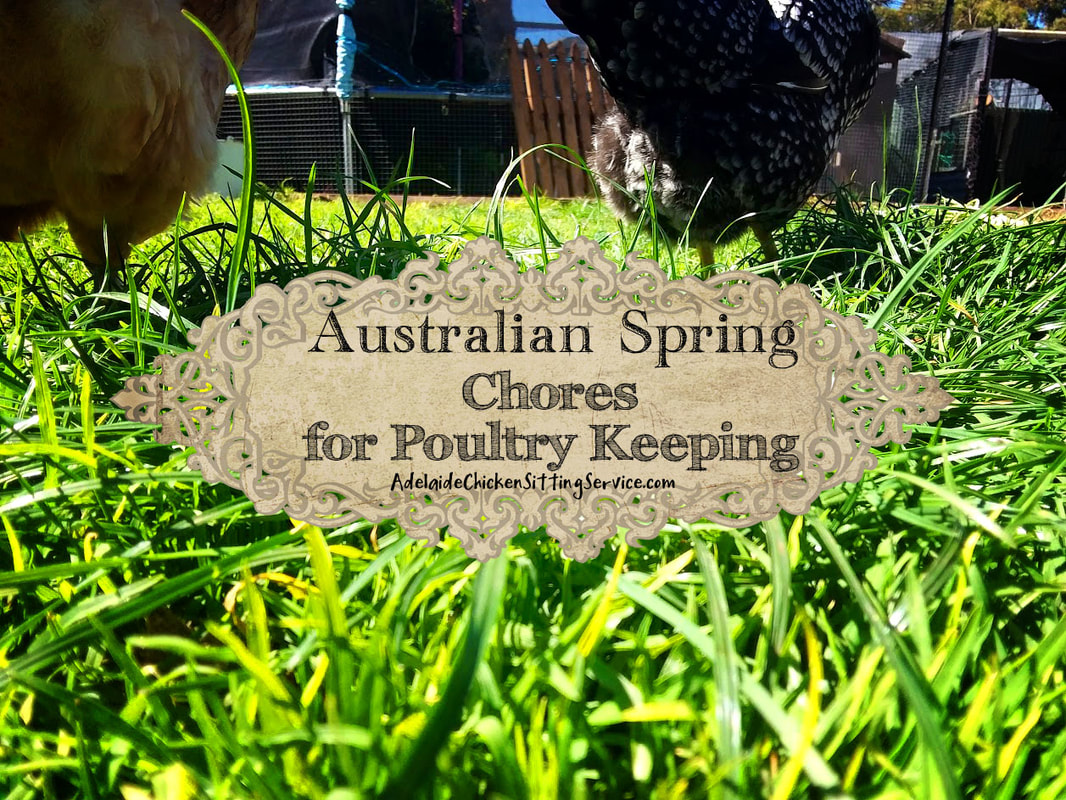
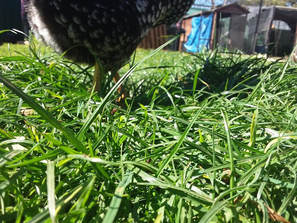
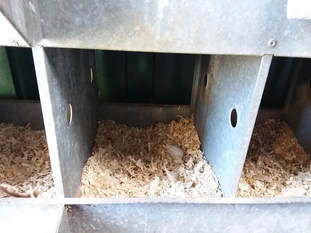
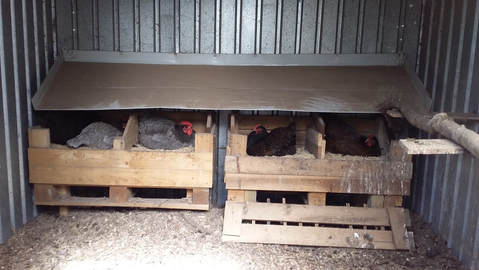
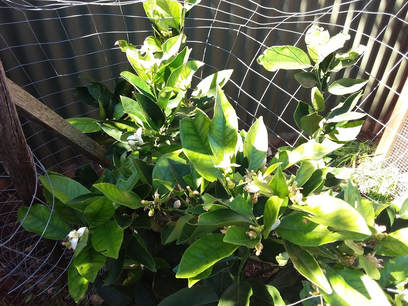
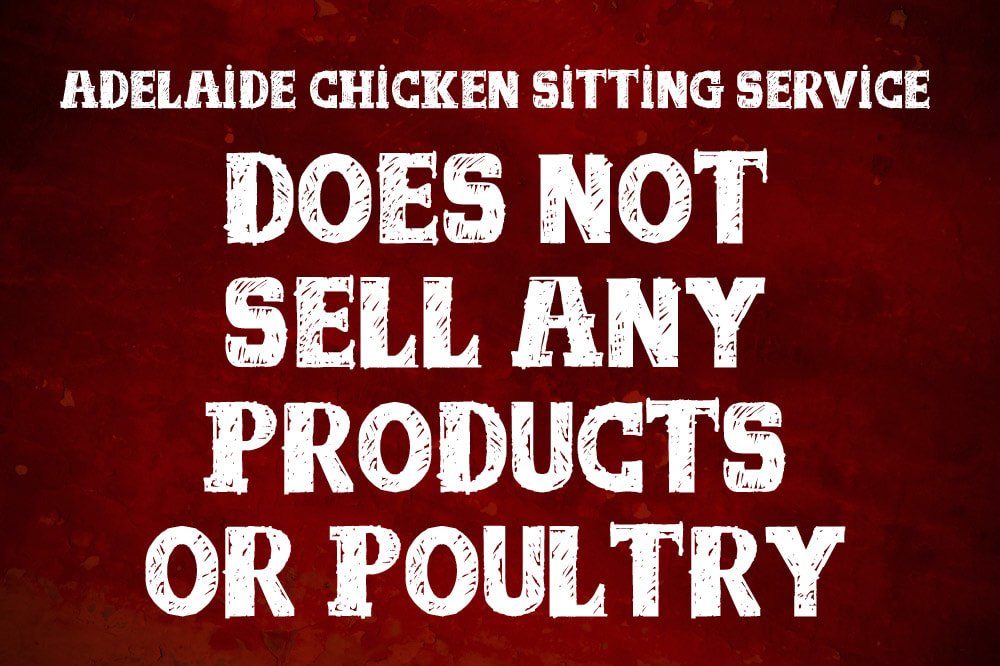

 RSS Feed
RSS Feed